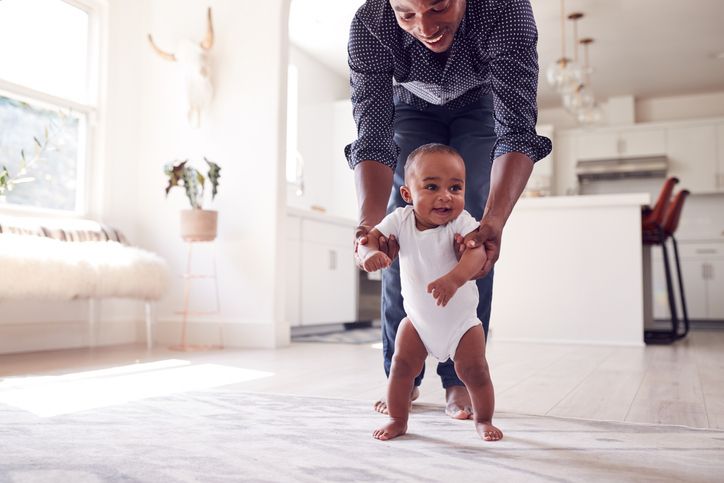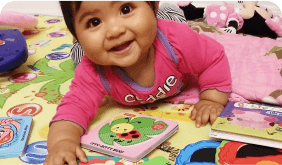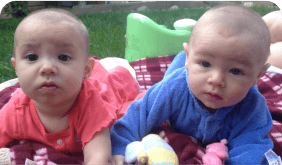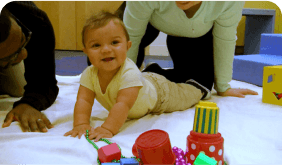 Walking is an important marker of healthy development for your baby—and baby’s first steps are exciting for both parents and baby! Not only is it essential for physical development, but it gives your child independence and access to new environments.
Walking is an important marker of healthy development for your baby—and baby’s first steps are exciting for both parents and baby! Not only is it essential for physical development, but it gives your child independence and access to new environments.
So let’s get moving! Here are some of your most common walking questions, answered.
When should my baby start walking?
Baby’s first steps are usually around their first birthday (12-15 months is the expected time when walking happens). Their first steps will be clumsy, so be there to protect them! If they have not taken steps by 16 months, contact their healthcare provider to learn more about walking.

What are signs that they will walk soon?
Baby’s first steps might happen soon if they are:
Pulling themselves up to stand
Standing while playing
Standing without leaning or arm support
How can I encourage walking?
Walking begins with baby getting comfortable on their feet. Encourage baby to play in a standing position. Have them stand without support by giving them toys to use in both hands while standing.
Once they seem comfortable standing, it’s time for a challenge! You can start by encouraging them to take individual steps over short distances. For support in these early phases, hold baby at their rib cage (not their arms) to promote use of their core muscles.
Watch this video to learn more about encouraging walking:
What are some walking behaviors to watch out for?
Toe Walking happens when children walk on their toes or balls of their feet. Some children may toe walk because of low muscle tone, a short or tight tendon in their leg, or just out of habit. Many children “experiment” with toe walking, trying it out but ultimately outgrowing it.
Some babies will go back to crawling. They may take a few steps, but then opt for crawling as their mode of movement. To encourage them to walk, try shortening the distance you are asking them to walk. This helps them to gain confidence in their walking, so they can gradually build up the endurance for longer distances. Additionally, continue to encourage standing while playing, so they get more comfortable on their feet.
Should I be afraid of my baby falling?
Do not fear a little fall! Baby will most likely be clumsy when they first begin walking, and that is totally normal. To keep them safe, make sure they aren’t surrounded by anything hard or sharp, and stay by their side as they get the hang of things. When they fall, encourage them with a positive voice.
What are some signs that there may be a delay?
Walking is an important test of baby’s development; if your child is having trouble achieving this milestone, it’s important to talk to a healthcare provider.
Some important signs to watch for are:
Overall resistance to walking
Stiff legs
Inability to take weight on their legs or steps independently
Arms held back
Difficulty lifting neck or straightening back
Prolonged toe walking
Frequent falling and poor balance
With walking, remember to take the process step-by-step—literally! If you have any concerns, contact your child’s healthcare provider.





